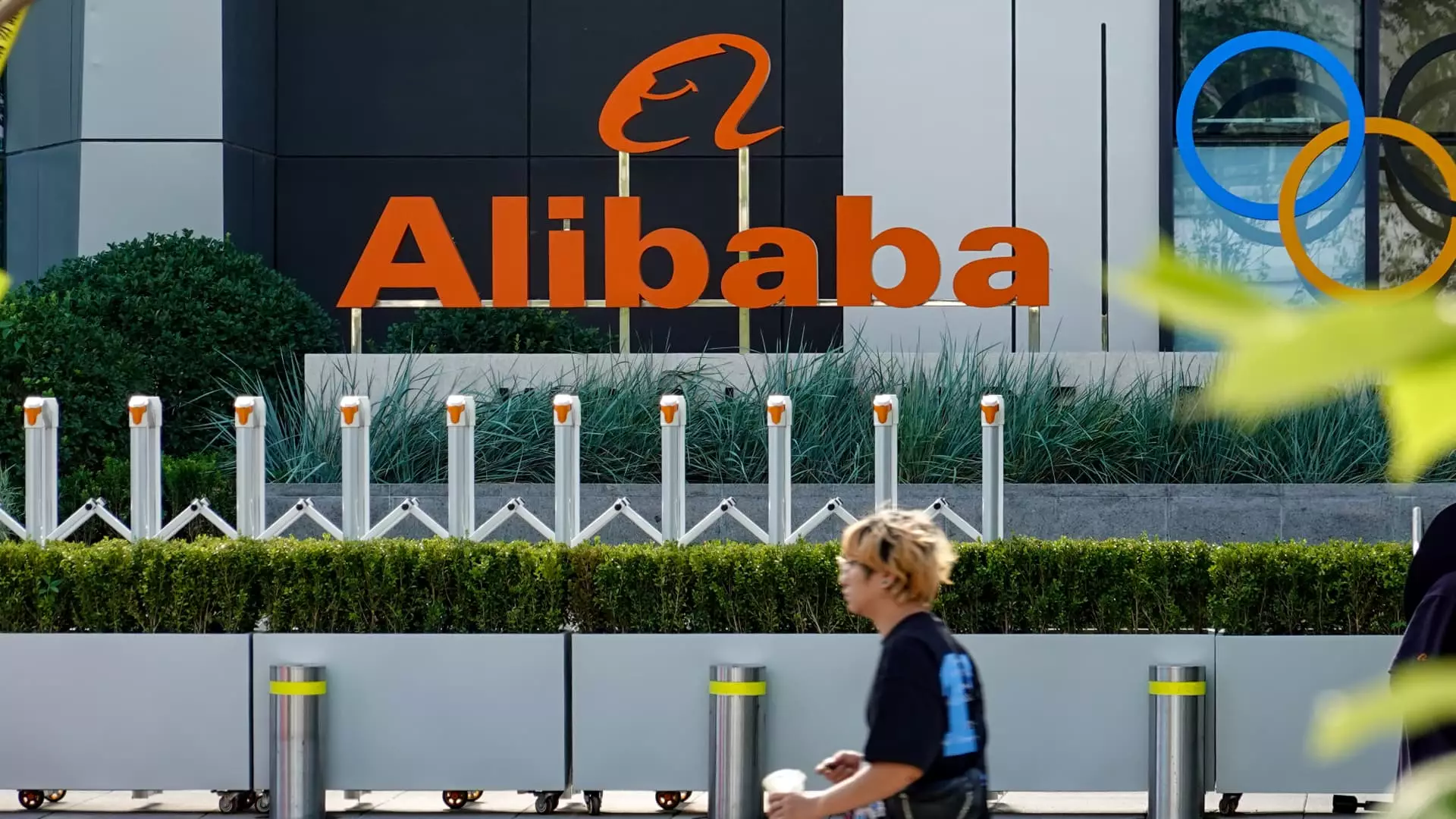Alibaba Group Holding Ltd. has become synonymous with Chinese e-commerce dominance, but investors would do well to look beyond the dazzling numbers that often steal the spotlight. Although eager advisors hawk the stock as a bulwark against tariff uncertainty, the reality surrounding Alibaba and its market environment paints a more complex picture. Quint Tatro, founder of Joule Financial, recently highlighted Alibaba’s impressive 56% increase in stock value over the past year, calling it a “buy” due to its supposed tariff immunity. However, endorsing Alibaba without a nuanced discussion about its inherent risks and fundamental properties could lead savvy investors astray.
A substantial portion of Alibaba’s revenue—estimated between 80% to 90%—derives from within China, while merely 5% is tethered to U.S. sales. This statistic is indeed compelling, and on the surface, it appears as though Alibaba won’t be assailed by tariff upheavals. Still, this raises questions: how insulated can any company really be, considering the broader geopolitical landscape? By putting all its eggs in the Chinese market basket, Alibaba creates a perilous dependency on a single economic environment. Relying on a turbulent market that is subject to government intervention, regulation, and economic fluctuation is a gamble that may not pay off.
Cash Holdings versus Growth Expectations
Yes, Alibaba boasts $67 billion in cash reserves, and its plans to invest over $50 billion in artificial intelligence over the next few years can seem impressive. However, one must question the sustainability of such investments. The notion that pouring cash into emerging technologies will result in exponential growth is enticing, but many companies throughout history have faltered despite similar ambitious plans. The faster-paced tech world is unforgiving, and while Alibaba aims high, it faces stiff competition—not just from domestic rivals but also from global tech giants who possess both innovation and brand loyalty.
Furthermore, it’s worth noting that Alibaba isn’t solely a technology company. It’s a blend of e-commerce, cloud computing, and various other services that could easily suffer if consumer sentiment shifts. The dependency on a single territory is less a sign of strength and more an open door to vulnerability. Investors must reflect critically: Can they trust that Alibaba’s strategies will translate into concrete benefits for its shareholders down the line?
The Broader Economic Landscape
Investors regularly turn to strong fundamentals, following the belief that low debt levels and dividend yields guarantee secure growth. Exxon Mobil, as discussed by Tatro, is another entity with fundamental strengths, boasting positive earnings growth alongside a solid cash cushion. However, relying on the fundamentals of energy stocks amidst an unpredictable administration’s policies feels like playing roulette. As we look at companies like Alibaba and Exxon, one question persistently rings true: Can corporate fundamentals weather the storm of external economic forces? Particularly in a politically charged environment, the role of governance cannot be discounted in influencing stock performance.
While Tatro laudably suggests that deregulation will counterbalance energy prices, a sizeable number of financial analysts might argue that merely hoping for favorable regulatory environments presents an illusion of security. Investors must thread cautiously—the reality that companies are ultimately at the mercy of broader economic currents is an undeniable risk, and expecting a million-dollar idea every few years is far more Hall of Fame rhetoric than practical reality.
The Tech Bubble Dilemma
Snowflake, the cloud data storage provider that Tatro mentions, bodes an interesting reference point in the ongoing discussion of investing in technology. The company’s flashy business model hides underlying issues, like its current trading at a particularly inflated valuation. While the stock’s potential is ratified by its business strategy, investors must ask if it’s merely another manifestation of the tech bubble that has ensnared many in the past. Could the trend of companies with soaring valuations falter if tariffs and consumer sentiments take a downward turn?
This brings up broader systemic issues facing tech companies today. The unpredictability of economic shifts, especially ones exacerbated by global trade tensions, raises the question of adaptability in this sector. Is the market becoming saturated with tech companies that are “must-buys” without substantial assessments of risk?
In truth, navigating the complexities surrounding Alibaba and similar investments requires a blend of skepticism and optimism—after all, the financial landscape remains fraught with pitfalls. A staunchly optimistic view could be alluring, but sensibility must guide financial decisions in this precarious market landscape.

